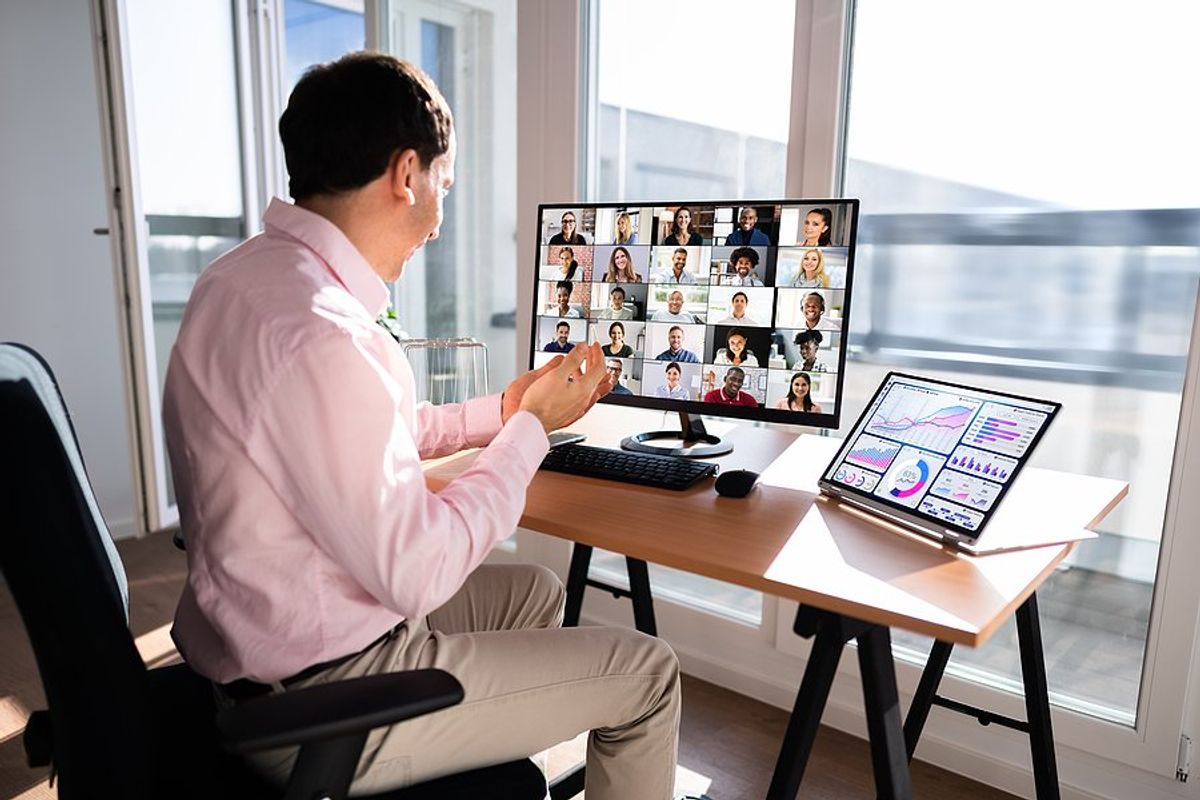As a manager or leader in the workplace, a big part of your day is probably spent in meetings—attending them and leading them. For the meetings you set up and lead, how can you ensure they're a productive use of your (and your team's) time?
We recently asked our leading executives for their best tips on how to conduct a productive meeting.
Here are their responses...
Ana Smith, Talent Architect & Global Learning Strategist
This is such an important and yet everyday question!
Here are some tips for the super basic ones for me:
- Setting a clear purpose and agenda. What do you hope to achieve by the end of the meeting? What topics need to be discussed? Creating a clear agenda will help keep the meeting on track and ensure that all of the important topics are covered. And please share it in advance!
- Invite the right people. Only invite people who are essential to the discussion. If you invite too many people, or too few, the meeting will be more difficult to manage and less productive.
- Start and end on time. Respect everyone's time by starting and ending the meeting on time. If you start late, people will start to check their phones or get distracted. If you end late, people will start to get restless and anxious to leave.
- Encourage participation from everyone. Don't let one or two people dominate the discussion. Make sure everyone has a chance to contribute their ideas. Be inclusive. If someone is shy, ask them specific questions to get them involved.
- Summarize the key points and next steps. At the end of the meeting, summarize the key points that were discussed and identify any next steps that need to be taken. This will help ensure everyone is on the same page and that the meeting was productive.
In order to make it even more productive:
- Create a positive and productive environment. Start the meeting by setting a positive tone and encouraging everyone to participate. Make sure the meeting space is comfortable and conducive to discussion. Especially consider this with virtual participants in the meeting.
- Be an active listener. When someone is speaking, give them your full attention and avoid interrupting. This will show that you are interested in what they have to say and that you value their input.
- Follow up after the meeting. Send out a summary of the meeting and any action items that were agreed upon. This will help ensure everyone is on the same page and that the meeting was productive. Maybe use one of the various options to create the summaries.
Kathryn Marshburn, Music Program Manager

Image from Bigstock
Having thoughtful, efficient meetings with teams should include many factors. Here are some tips for achieving a successful meeting:
1. Provide objectives, goals, and notes from previous meeting minutes, in an agenda format, and distribute them the day before the meeting (preferably by noon). Ask for anyone’s input BEFORE the meeting and add all responses to the agenda and assign team members to specific topics if needed.
2. Once a detailed agenda (that includes all the important topics and issues that need to be discussed) is completed, be sure to distribute it as a Google Doc. (This makes it easy for multiple members to edit and update during meetings on Zoom). Ensure that each agenda item has a specific timeframe allocated to it and that all attendees are aware of the agenda in advance and will be ready to speak on the topic that has their name noted next to the item.
3. Start the Zoom platform, or other platform, on time as a host.
4. Greet everyone on camera and have a positive, energetic vibe! Welcome any new members or guests. Give team members five minutes to enter the meeting before you start.
5. Welcome everyone and shift to "share screen" to showcase the Google Doc that has the agenda. To keep attendees awake and alert, update the Google Doc LIVE during the meeting by assigning follow-ups, notes, and meeting member names to any input given on the topic. This does work to keep people alert, as they watch you update the document as the meeting progresses.
6. Encourage all attendees to participate and provide their input on the topics being discussed. Ensure that everyone has an opportunity to speak and that there is no domination by any individual or group.
7. Keep the discussion focused on the agenda items and the objectives of the meeting. If a topic is taking too much time or is straying from the agenda, gently redirect the discussion back to the main topic.
8. Following the meeting, distribute the meeting minutes, follow-ups, and action items to all attendees. Schedule follow-up meetings or calls to ensure that action items are completed and that progress is made.
These tips should help execute an amazing meeting. Good luck!
Kathryn Marshburn has spent 12+ years in the music and gaming industries guiding teams on identifying targeted goals with an agile approach resulting in driving revenue and reducing risk.
Michael Willis, Sports Business Operations Executive

Image from Bigstock
In the past, I was never one to encourage frequent meetings. I have encountered managers who wanted to meet solely to look like something was getting done. This caused frustration with the team.
1. Define a Clear Purpose for the Meeting.
Assign a theme as to why the meeting is being called. Why are we coming together? Who needs to be at the meeting?
Assign a timeline. How long will the meeting be?
2. Set a Meeting Agenda.
What will we discuss, and what are we trying to achieve? Is there any old business that still needs attention?
Who is going to do the talking? For how long?
3. Collaboration.
I would let everyone know that this is a working meeting. Allow open engagement and feedback amongst the team. Set the tone of the meeting that encourages and embraces a space where everyone can express their ideas and opinions without feeling afraid. As the leader, I would make sure the discussion stays on topic.
4. End the Meeting.
As I wrap up the meeting with final thoughts, I would ask if there were any final questions or thoughts. I would thank the team for their input and attendance. I will summarize the discussed agenda points and discuss the next steps.
Finally, I would propose a date for the next meeting so that everyone could put it on their calendars.
Michael Willis has 18+ years of experience working with accounting & sports organizations and has managed P&Ls of $10M - $125M+ with budgets of $3M-$50M+. He worked for the NFL for 22 1/2 years, mainly with the game officials working on the financial/accounting side of the business.
How do you conduct productive meetings? Join the conversation inside Work It Daily's Executive Program.




